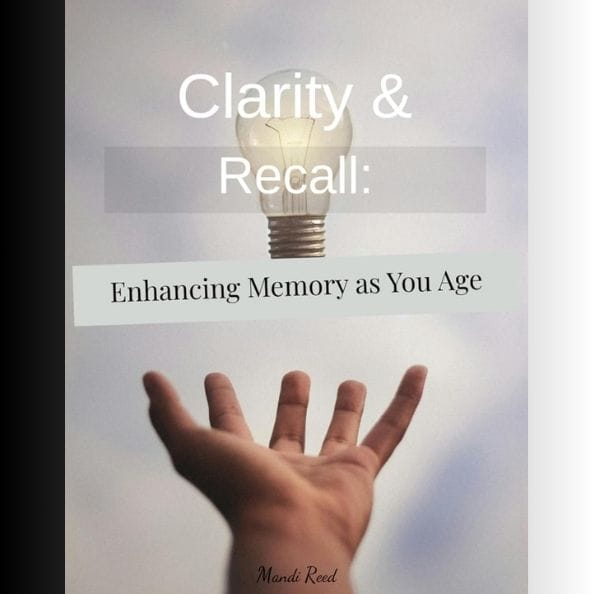Key Takeaways:
- Music is a universal language that transcends cultural and linguistic barriers, offering emotional and cognitive benefits.
- Engaging with music can enhance mental health, improve cognitive function, and foster social connections.
- Understanding the science behind music can help individuals and communities leverage its full potential for personal and collective growth.
The Universal Language of Music
Music 🎼 , often described as the universal language, has the unique ability to transcend cultural and linguistic barriers.
It speaks to the heart and soul, resonating with individuals from all walks of life. Whether it's
- the rhythmic beats of African drums, 🪘
- the soulful melodies of Indian sitar, or
- the harmonious symphonies of Western classical music, each genre tells a story that is understood universally.
*This global appeal is not just a coincidence; it is deeply rooted in our shared human experience.
The power of music lies in its ability to evoke emotions and memories ... A single song can transport you back to a specific moment in time, reminding you of people, places, and feelings.
This emotional connection is why music is often used in therapy and healing practices. It can calm the mind, uplift the spirit, and even bring people together in times of joy or sorrow.
*By understanding and embracing this universal language, we can harness its potential to enrich our lives and foster a deeper connection with others.
The Science Behind Music's Impact
The impact of music on the human brain is a fascinating area of study ...
- Neuroscientists have discovered that listening to music activates multiple areas of the brain, including those responsible for emotion, memory, and motor control.
Most common today are music playlists that increase productivity in the workspace. Here's one of those ...
This widespread activation explains why music can evoke such strong emotional responses and why it is often used in therapeutic settings to aid in recovery and rehabilitation.
- Moreover, music has been shown to improve cognitive function. Studies have found that musicians often have enhanced memory, attention, and problem-solving skills compared to non-musicians.
This cognitive boost is attributed to the complex nature of music, which requires the brain to process multiple elements simultaneously, such as melody, rhythm, and harmony.
*By engaging with music, whether through listening or playing an instrument, individuals can enhance their cognitive abilities and improve their overall mental acuity.
Music and Mental Health
Music's influence on mental health is profound ...
- It has the power to reduce stress, alleviate anxiety, and combat depression. Listening to calming music can lower cortisol levels, the hormone associated with stress, and promote relaxation.
This is why music therapy is often used as a complementary treatment for mental health disorders, providing a non-invasive and enjoyable way to improve emotional well-being.
- In addition to its calming effects, music can also boost mood and increase feelings of happiness.
Upbeat and lively tunes can trigger the release of dopamine, the brain's "feel-good" chemical, leading to improved mood and increased motivation.
*By incorporating music into daily routines, individuals can create a positive and uplifting environment that supports mental health and well-being.
Music as a Tool for Social Connection
Music has always played a crucial role in bringing people together ...
- From communal singing and dancing to attending concerts 🎫 and festivals, music fosters social connections and strengthens community bonds.
*It provides a shared experience that transcends individual differences, allowing people to connect on a deeper level.
- Participating in musical activities, such as joining a choir or band, can also enhance social skills and build a sense of belonging.
*These group activities require collaboration, communication, and teamwork, skills that are essential for building strong relationships.
**By engaging with music in a social context, individuals can develop meaningful connections and create a supportive network of friends and peers.
The Role of Music in Education
Incorporating music into education can have a significant impact on learning and development ...
- Music education has been shown to improve language skills, enhance memory, and boost academic performance.
*Learning to play an instrument 🎻 , for example, requires discipline, patience, and perseverance, qualities that are transferable to other areas of life.
- Moreover, music can make learning more enjoyable and engaging. Songs and rhymes are often used in early childhood education to teach basic concepts such as numbers, letters, and colors.
*This approach not only makes learning fun but also helps children retain information more effectively.
**By integrating music into the curriculum, educators can create a dynamic and stimulating learning environment that supports student success.
Music and Cultural Identity
Music is an integral part of cultural identity, reflecting the values, beliefs, and traditions of a community ...
- It serves as a means of preserving cultural heritage and passing it down to future generations. Through music, individuals can explore their cultural roots and gain a deeper understanding of their identity.
- In a multicultural society, music can also promote cultural awareness and appreciation. By exposing individuals to diverse musical genres and styles, we can foster a greater understanding and respect for different cultures.
*This cultural exchange can lead to a more inclusive and harmonious society, where diversity is celebrated and embraced.
The Therapeutic Benefits of Music
Music therapy is a growing field that harnesses the healing power of music to address physical, emotional, and cognitive challenges.
It is used in a variety of settings, including hospitals, rehabilitation centers, and schools, to support individuals with a wide range of needs. Music therapy can help reduce pain, improve communication skills, and enhance emotional expression.
- One of the key benefits of music therapy is its ability to provide a safe and non-threatening outlet for emotions. For individuals who struggle to express themselves verbally, music can offer an alternative means of communication.
*By engaging with music, individuals can explore their feelings, process difficult emotions, and work towards healing and recovery.
Music and Technology
The advent of technology has revolutionized the way we create, share, and experience music.
- Digital platforms and streaming services have made music more accessible than ever before, allowing individuals to explore a vast array of genres and artists at the click of a button.
*This accessibility has democratized the music industry, giving independent artists the opportunity to reach a global audience.
- Technology has also transformed the way we create music. Digital audio workstations, synthesizers, and other electronic instruments have expanded the possibilities for musical expression, enabling artists to experiment with new sounds and styles.
*By embracing technology, musicians can push the boundaries of creativity and innovation, creating music that resonates with audiences worldwide.
The Future of Music
As we look to the future, the potential of music is limitless. Advances in technology, neuroscience, and education will continue to shape the way we interact with music, opening up new possibilities for personal and collective growth.
Virtual reality, for example, is already being used to create immersive musical experiences that transport listeners to new worlds.
Moreover, the growing recognition of music's impact on mental health and well-being will likely lead to increased investment in music therapy and education.
By harnessing the full potential of music, we can create a more harmonious and connected world, where individuals and communities thrive.
FAQ
Q: How does music affect the brain?
A: Music activates multiple areas of the brain, including those responsible for emotion, memory, and motor control.
This widespread activation explains why music can evoke strong emotional responses and improve cognitive function.
Q: Can music therapy help with mental health issues?
A: Yes, music therapy is an effective complementary treatment for mental health disorders.
It can reduce stress, alleviate anxiety, and improve mood by providing a non-invasive and enjoyable way to enhance emotional well-being.
Q: How can music be used in education?
A: Music can enhance learning by improving language skills, memory, and academic performance. It makes learning more enjoyable and engaging, helping students retain information more effectively.
Summing it all Up
Music is a powerful force that transcends boundaries and connects us all.
From its impact on mental health and cognitive function to its role in education and cultural identity, music offers a wealth of benefits that can enrich our lives.
By understanding and embracing the full potential of music, we can harness its power to foster personal growth, strengthen social connections, and create a more inclusive and harmonious society.
Take a really good listen and savor the power of music to its highest potentials ..








